UNSC resolution on Gaza ‘falls well short, ceasefire needed’: UNRWA
The UN Relief and Works Agency for Palestine Refugees (UNRWA) has criticized the recent United Nations Security Council resolution aimed at increasing humanitarian aid to the Gaza Strip, saying it falls well short and that a ceasefire is needed.
Thomas White, director of UNRWA affairs in Gaza, made the remarks on Saturday, a day after the UNSC passed a resolution on the ongoing Israeli onslaught against Gaza.
“We need a ceasefire that will stop the killing of civilians and the destruction of civilian infrastructure in Gaza, but most importantly, to enable conditions on the ground here so we can effectively deliver aid to the people of Gaza,” White said.
He added tha as there is no “safe and secure access for aid workers,” the UN agency cannot deliver aid to much of the population, stressing that UNRWA aid workers are constantly at risk.
“We had one of our staff who was hit by tank fire into a tractor. He was operating at a dump site the other day and down on the Rafah border crossing, we’ve had three drone strikes in recent days,” he said.
White further noted that “nothing has changed” in Gaza since the UNSC passed the resolution to boost aid, adding that people continue to be pushed around Gaza into an increasingly smaller space where there are ongoing airstrikes.
He reiterated the need for a ceasefire to end the suffering of civilians, hundreds of thousands of whom are living in the open, as “airstrikes continue to hit all parts of Gaza”.
Médecins Sans Frontières (MSF), also known as Doctors Without Borders, also said the UNSC resolution reiterated the need for a ceasefire in Gaza.
“The way Israel is prosecuting this war, with US support, is causing massive death and suffering among Palestinian civilians and is inconsistent with international norms and laws. Even war has rules,” MSF said in a post on X, formerly known as Twitter.
The UN Security Council resolution falls painfully short of what is required to address the crisis in Gaza: An immediate & sustained ceasefire👇 https://t.co/U1UgyiVBrD
— MSF International (@MSF) December 23, 2023
“Stop attacks on hospitals, healthcare workers, and ambulances.”
Avril Benoît, executive director of MSF-USA also said “This resolution has been watered down to the point that its impact on the lives of civilians in Gaza will be nearly meaningless.”
Palestine's UN Ambassador Riyad Mansour also described the resolution as a “step in the right direction,” emphasizing that what’s necessary is an immediate ceasefire.
Tedros Adhanom Ghebreyesus, director-general of the World Health Organization (WHO), also welcomed the resolution, but reiterated the need for an immediate ceasefire in the Gaza Strip.
UN Secretary-General Antonio Guterres said in a post on X that he hopes the resolution can improve the delivery of aid, “but a humanitarian ceasefire is the only way to begin to meet the desperate needs of people in Gaza and end their ongoing nightmare”.
I hope that today’s Security Council resolution may help improve the delivery of much-needed aid but a humanitarian ceasefire is the only way to begin to meet the desperate needs of people in Gaza and end their ongoing nightmare.
— António Guterres (@antonioguterres) December 22, 2023
On Friday, the United Nations Security Council passed a resolution demanding increased aid deliveries to Gaza but stopping short of calling for an immediate halt to the genocide.
The watered-down resolution demanded all sides in the conflict allow the “safe and unhindered delivery of humanitarian assistance at scale.”
It also called for the creation of "conditions for a sustainable cessation of hostilities" but it did not call for an immediate end to fighting.
The vote in the 15-member council was 13-0 with the United States and Russia abstaining.
Israel launched the war on Gaza on October 7 after Hamas waged the surprise Operation Al-Aqsa Storm against the occupying entity in response to the Israeli regime’s decades-long violence against Palestinians.
Since the start of the offensive, the Tel Aviv regime has killed over 20,000 Palestinians and injured more than 53,000 others.
The Tel Aviv regime has imposed a “complete siege” on the territory, cutting off fuel, electricity, food, and water to the more than two million Palestinians living there.
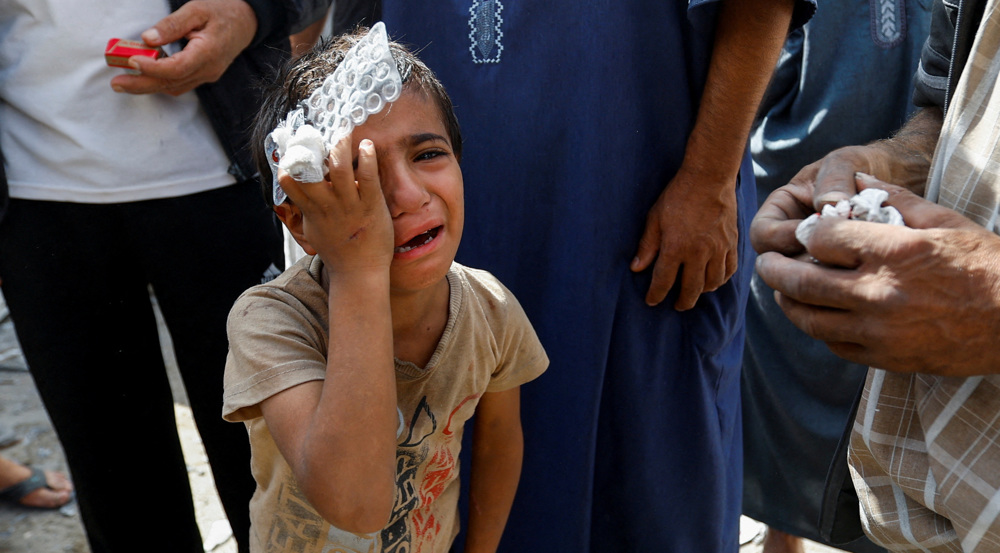
BBC blasted for pulling documentary on Gaza children after Israel lobby pressure
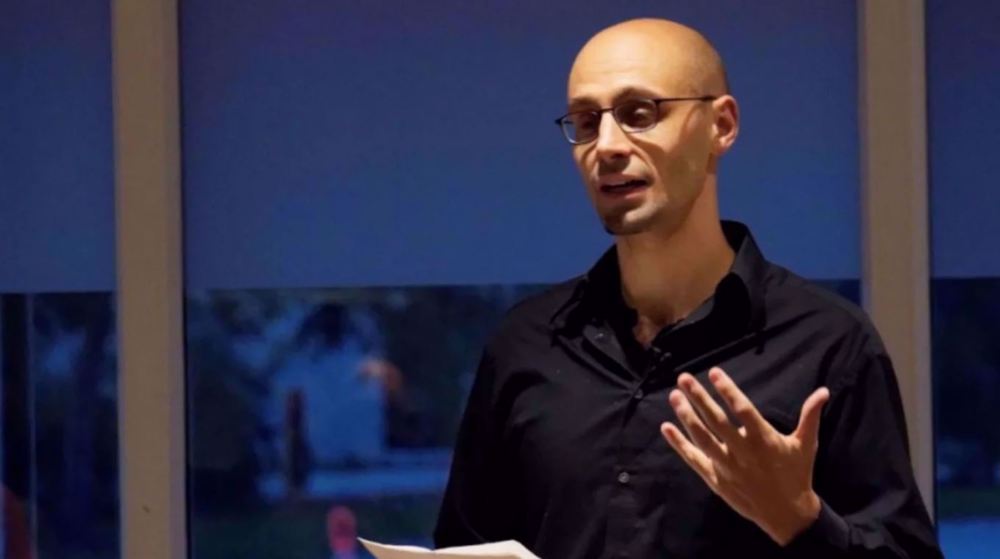
Canada arrests prominent activist over pro-Palestinian stance
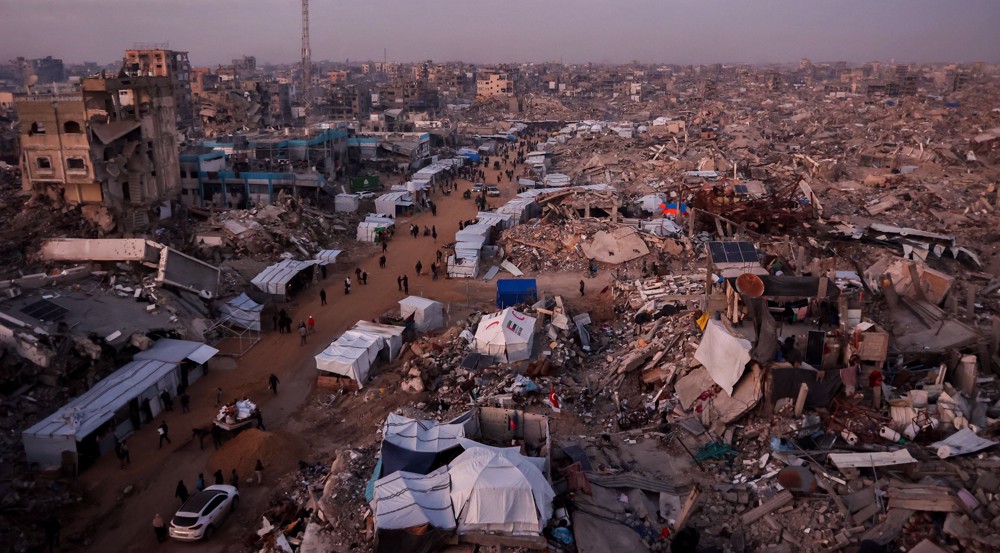
Israeli forces kill Palestinian woman in southern Gaza in another ceasefire violation
VIDEO | Bahraini mourners hold symbolic funeral procession for late Hezbollah leader
VIDEO | Trump's plan for Gaza
Iran’s foreign minister, parliament speaker to attend Nasrallah's funeral
Iran: Russian FM due in Tehran in coming days for key talks
Electronic Intifada director’s violent arrest and MI6 infiltration into ‘neutral’ Switzerland
‘Nothing short of Kafkaesque’: Netizens react to arrest of pro-Palestine activist in Canada
'Enemy is wicked': 17-year-old Lebanese pager victim on life after losing eyes
Geothermal is Iran’s other potential energy game-changer


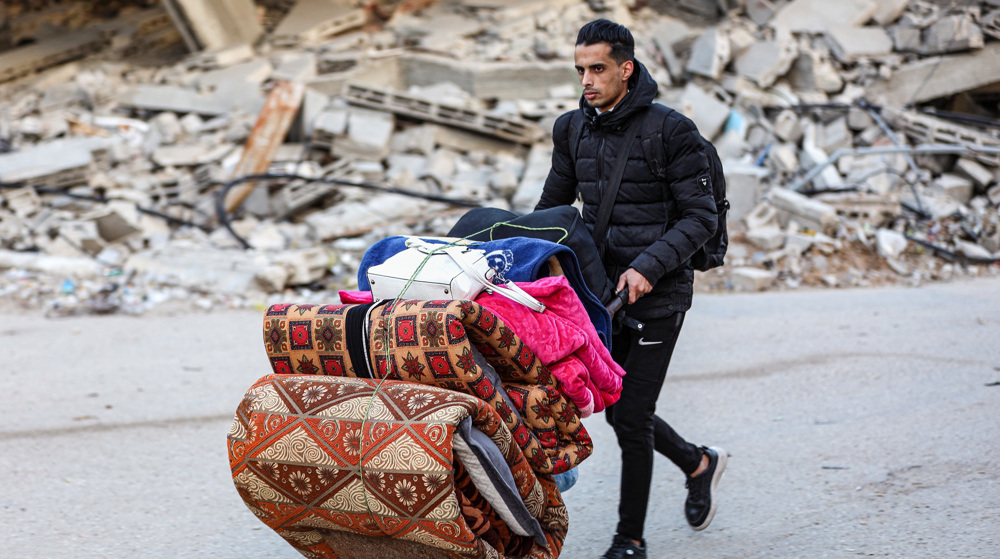
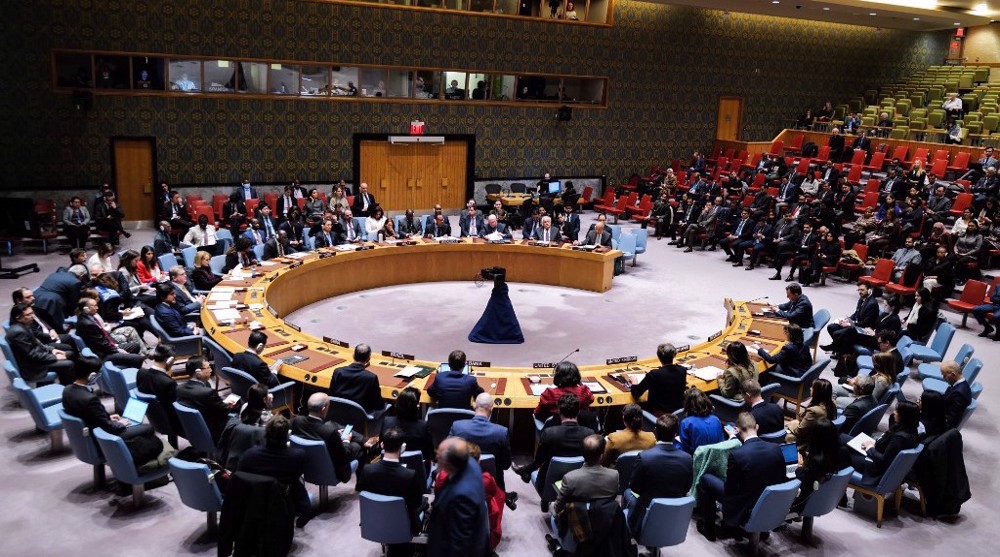
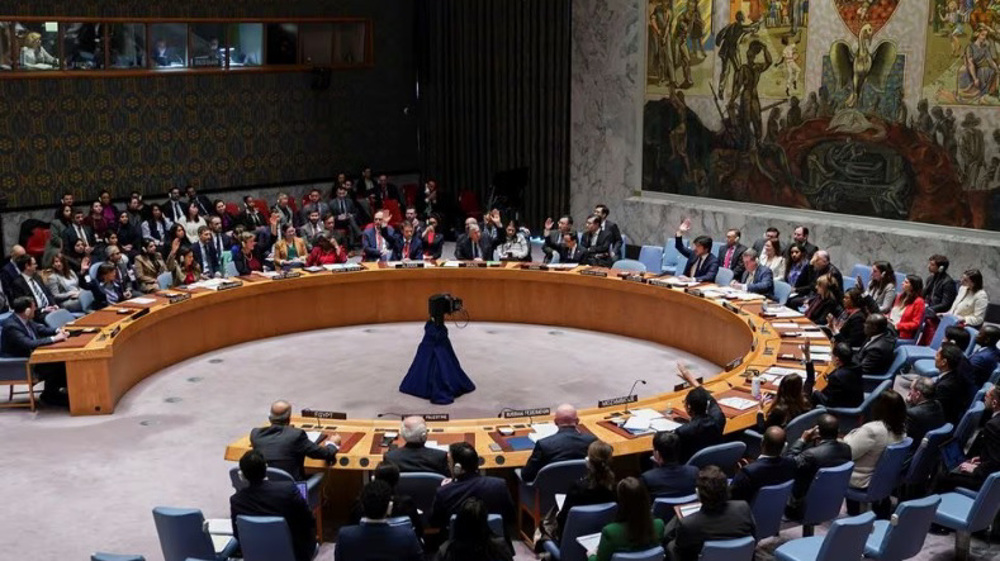



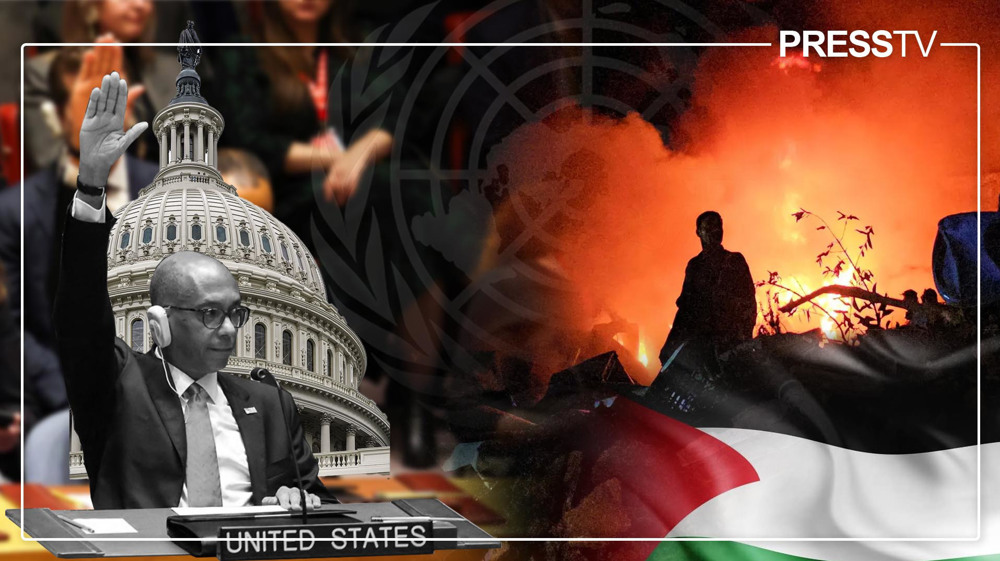
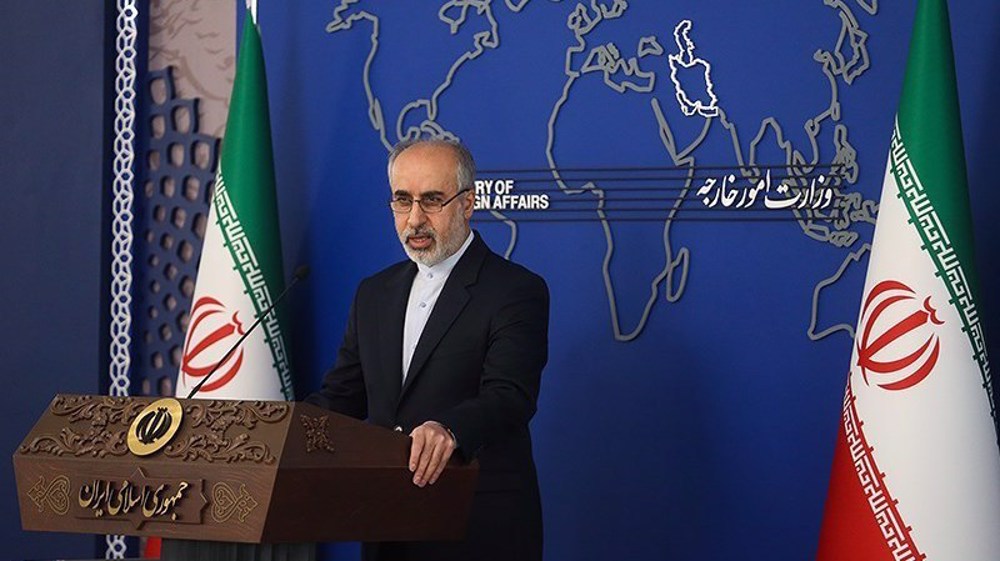
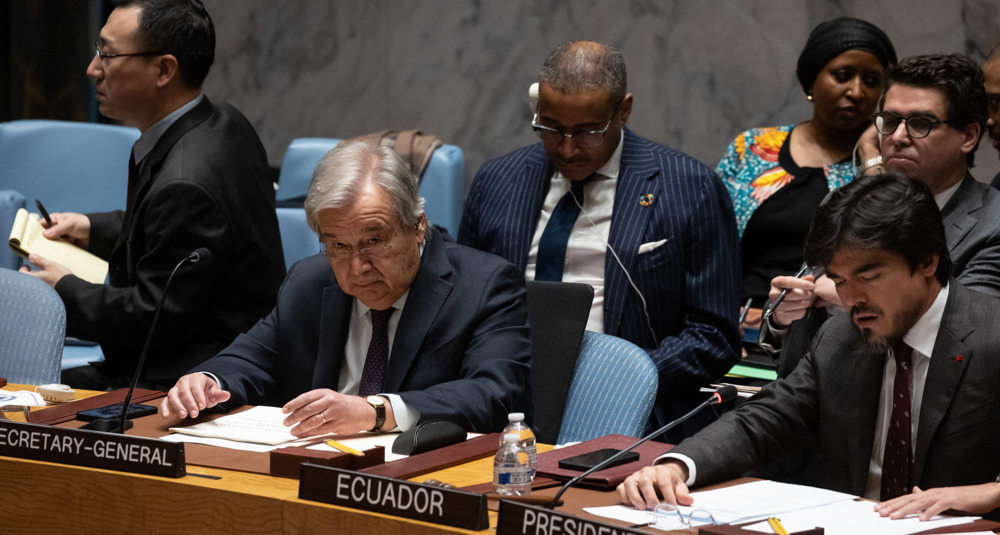

 This makes it easy to access the Press TV website
This makes it easy to access the Press TV website